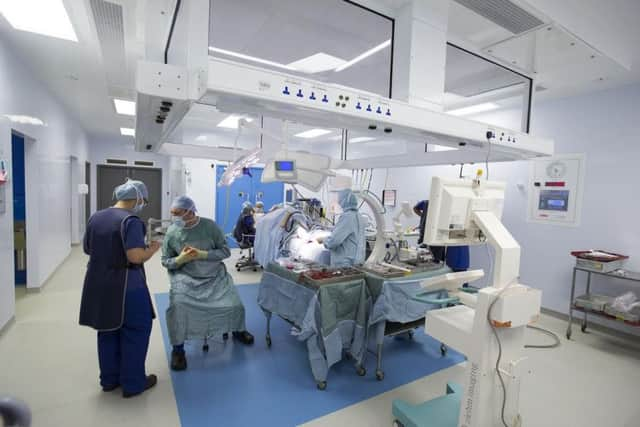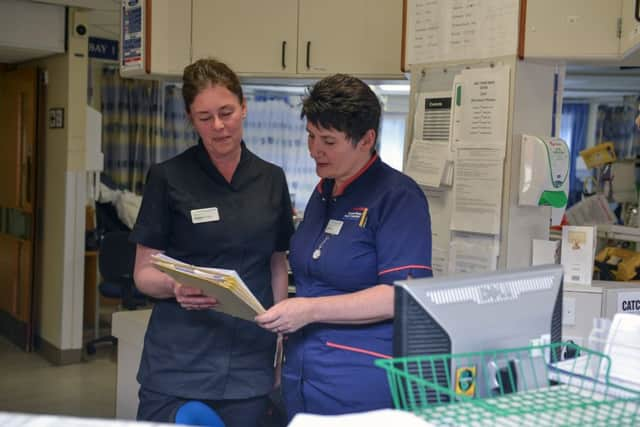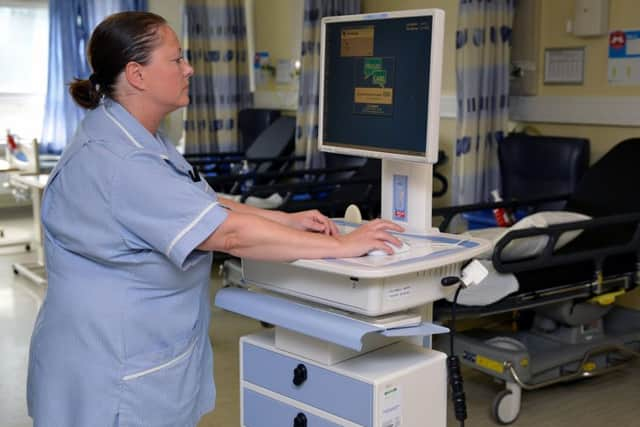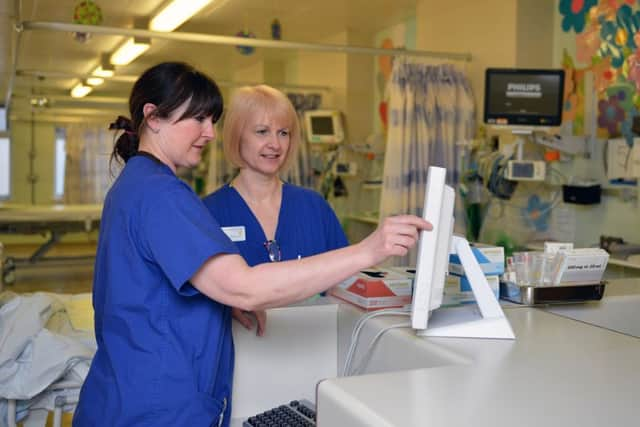FEATURE: '˜Your life in their hands' - going under the knife at Chesterfield Royal


“Are you allergic to anything?” asks a female voice from behind a curtain.
“Are you taking any medication?”
Nurses and healthcare assistants are busy, making their way from patient to patient - taking pulses, taking blood pressures.


Advertisement
Hide AdAdvertisement
Hide AdLorna Bateman is giving out medication. Painkillers are often administered before the operation, so they have kicked in by the time the patient wakes up.
This is Holywell Day Ward at Chesterfield Royal Hospital.
And this is where you come if you’re having a pre-arranged operation.
Here patients are made ready for surgery, consultants and anaesthetists move from bed to bed, asking questions, checking notes.


Lorna is speaking to a man in his late 40s. His name is Paul.
Advertisement
Hide AdAdvertisement
Hide AdShe takes his pulse, asks about allergies, then she gives him medication - explaining what it is and what it will do.
Everything goes down on the patient’s file.
She goes to check the theatre list. Nothing has changed. It is Paul’s turn to go down.


He is walking down. He is told to put his dressing gown on, to bring his pillow with him.
Has he got his stockings on?
“Yes!” He shows off a pair of anti-compression stockings, worn to combat blood clots.
Advertisement
Hide AdAdvertisement
Hide AdAnd off he goes. This is where the heart really starts to pound, I am told.


Later Paul will be back on the ward. Later in the day he will be going home.
“You have the theatre list, you know what order the patients are going to go down, but then things can change, depending on the clinical needs of individual patients,” says ward Matron Jane Bolton.
“This is such a broad specialism, what we do here, and it varies immensely. The patients vary as well - some are more nervous than others - so everything we do here is tailored to the needs of the individual.”
Advertisement
Hide AdAdvertisement
Hide AdA short walk away and I am standing in the corner of an operating theatre, watching a patient have her tonsils removed.
There are 12 theatres in total - situated down a long and wide corridor. All are full, all are busy.
One theatre is set aside for emergencies - they are currently caring for an expectant mum who needs an unexpected caesarian section.


They are also refitting all the operating theatres, one at a time, which is a massive job.
Advertisement
Hide AdAdvertisement
Hide AdBuilding work and sterile environments are not natural bedfellows. The process will not be completed until 2018.
Inside the theatre it is calm, tranquil. The patient’s mouth is clamped open, her tongue pinned down while the surgeon works delicately in her throat.
He is surrounded by theatre staff, and is also teaching two junior doctors at the same time.
The anaesthetist stands to one side, continually monitoring her vital signs.
Advertisement
Hide AdAdvertisement
Hide Ad“This is the scrub nurse,” explains Matron Clair Gill, motioning to a woman who stands over a trolley of implements, passing them on demand.
“The scrub nurse remains completely sterile throughout - nobody else touches these implements. They work as a real team here - an experienced scrub nurse will know the implement the surgeon needs before they ask for it.”
Once completed, all surgical tools are double checked, to make sure nothing has been left behind. All swabs are counted out as they are used, then counted as they go in the clinical waste bin.
A tonsil emerges and is placed on the side for disposal. Another follows.
Advertisement
Hide AdAdvertisement
Hide AdThen there is a problem. The patient’s oxygen levels have dropped. The surgeon steps away and the anaesthetist moves in.
The patient is stabilised. The operation continues. It is calm throughout.
From here the patient moves on to the post-anesthesia care unit - known as PACU - where she will be monitored until she is stable. Then she will be transferred back to the ward. They expect her to be here for about half an hour. Some patients who have had major and complex surgery will be on the unit through the night, as it also functions as a high-dependency facility if needed.
As I leave she starts to come round. She’s going to be okay.
Advertisement
Hide AdAdvertisement
Hide AdThe unit is quiet at the moment. We are still quite early on in the theatre list. By 5pm it will be packed.
They are already prepared for the unexpected arrival making its entrance into the world further down the corridor.
Back on Holywell it is still quiet, still subdued.
Some are still waiting for their operations, still nervous.
Others are returned, relieved. They will be going home tonight. Soon their families will be here. Soon they will be back on their feet - carrying on with the rest of their lives.